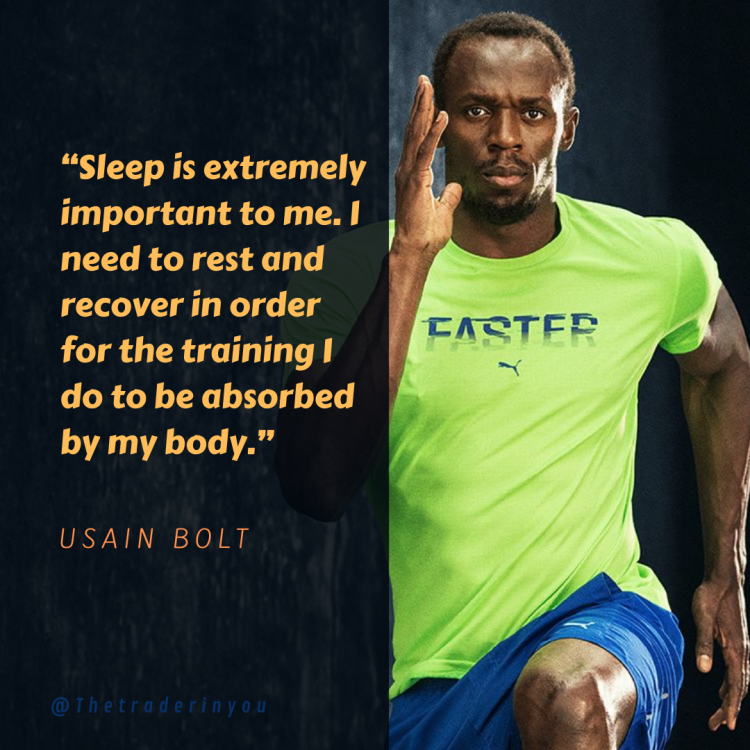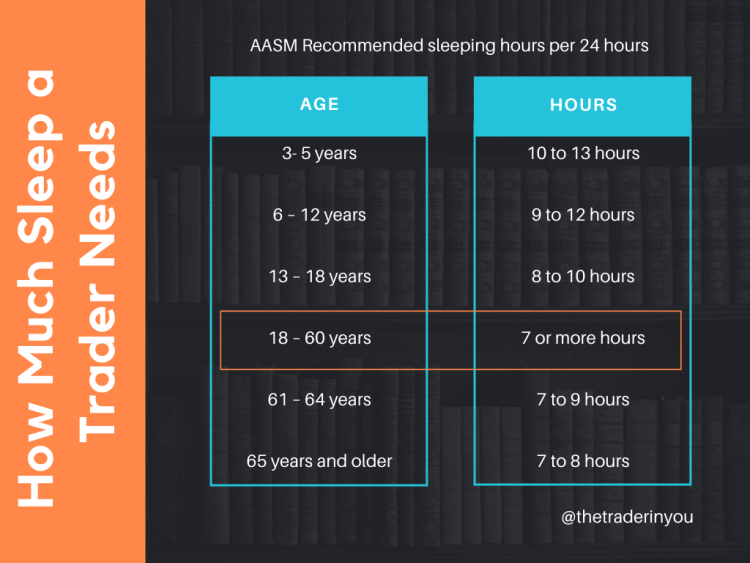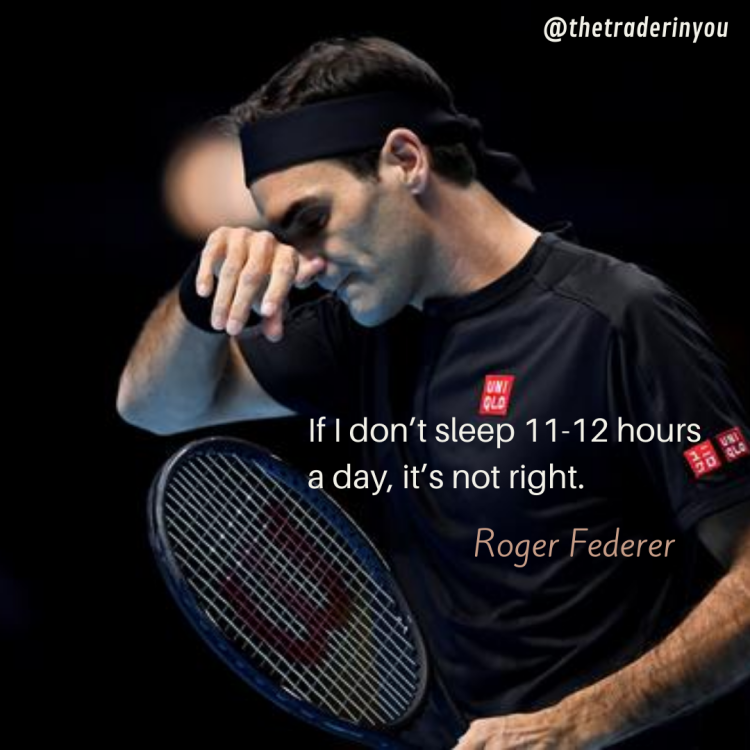We don’t think much about it, but do you know how sleep affects a trader?
We talk candlesticks, patterns, strategies, brokers, trading psychology, and seldom basics that influence performance like relationships, exercise, sleep, health, and diet.
Could there be a relationship between these aspects of life with trading performance?
Why getting enough sleep is important to a trader.
I didn’t care about how sleep affects a trader until I almost blew an account trading on less than 3 hours sleep.
After that episode staring a margin call, I cared.
Like athletes, traders breathe, eat, live, sleep for their sport.

Traders can therefore learn something from athletes.
There is overwhelming evidence that correlates the quantity and quality of sleep to the performance of top athletes.
If sleep impacts the performance of athletes, how about traders?
No wonder, most brokers use athletes in their marketing campaigns.
The fact is that to master the trader in you, your mind and physical health need to be in top form.
Else, you can’t compete with the brilliant minds and multi-million-dollar algos deployed to take your money.
Research into the impact of sleep reveals the immense value of sleep to performance, memory, learning, mood, and judgment.
God knows how priceless these are to day-traders.

You can easily plug the holes that keep you in perpetual loss by just having a good dose of sleep.
Why?
Because sleep is as essential to life as breathe.
If you don’t get enough of it, you pay with your health and money.
Why sleep matters — a study by the RAND Corporation — reveals that the economic costs of insufficient sleep, stands at $411 billion a year in the US alone.
Do you know the cost of insufficient sleep in your trading?
How Sleep Affects A Trader
Everyone needs sleep, but traders like athletes need it more.

The Sleep Foundation cites a study in the journal SLEEP that confirms the role of sleep in performance with results that show declines in split-second decision making following poor sleep.
Scalpers, do you copy?
The results also showed increased accuracy in well-rested subjects.
Accuracy is an obsession of many traders in entering and exiting trades.
There’s something called “brain plasticity,” simply, the ability of the brain to adapt to input.
Ever felt grumpy after a bad night or the hangover morning after a night downing liters of liquor?
Well, that’s because sleep significantly impacts brain function.
The quantity and quality of sleep are vital for “brain plasticity.”
Mark Wu, M.D., Ph.D., of John Hopkins highlights several connections between health and sleep.
When people don’t get enough sleep, their health risks rise.
Symptoms of depression, seizures, high blood pressure, and migraines worsen.
Immunity is compromised, increasing the likelihood of illness and infection.
Sleep also plays a role in metabolism: Even one night of missed sleep can create a prediabetic state in an otherwise healthy person.
Some research also suggests that sleep deprivation increases levels of the stress hormone, cortisol.
For you to function at peak performance as a trader, you need good health.
You can’t have good health without good sleep. Science proves it.
But science is only making sense of what your body already knows. Listen to it.
Now that you know how sleep affects a trader you want to know :
How much sleep is enough?
These are guidelines by The American Academy of Sleep Medicine (AASM) on the amount of sleep one needs to promote optimal health and avoid health risks associated with sleep deprivation.

Most traders fall in the 18-60 years age bracket begging for 7 or more hours of sleep.
Depending on your extracurricular activities you may need more sleep.
How to get better sleep as a trader.
Like with your trading, you get better sleep by practicing good sleep habits.

- Cut on leverage – don’t trade with a lot size that keeps you awake and glued to the screen.
- Sleep in a cool, dark, quiet room.
- Limit the use of electronic items before bedtime.
- Keep your meals at least two hours before bedtime.
- Avoid caffeinated drinks Drink caffeine (coffee, tea, soda) only in the morning because it is a stimulant that keeps you awake
- Create a consistent sleeping schedule with a regular bedtime and wake time
- Get plenty of exercises
- But minimize very early or very late exercise sessions
- I learned this one the hard way; when you travel long distances and especially across time zones, give your body one day to adjust appropriately.
Final thoughts.
It takes a lot more than a trading system and strategy to become a disciplined and profitable trader.
You have to take care of your body and health for peak performance.
Sleep is one way.

Most trading demons stem from the mind, and no amount of trading psychology training will escape you from their wrath. Sleep.
In parting, now that you know how sleep affects a trader if you keep a trading journal, track your trading performance based on the amount of sleep you get.
You can then modify your trading plan and strategy to, for instance, not trade if you didn’t get a enough sleep.
If you want to dig deeper and learn more about sleep – check this out.
The Science of Sleep – A resource from the Division of Sleep Medicine at Harvard Medical School
If you continue to have sleep problems such as restless sleep or difficulty going to sleep, talk with your healthcare provider or a sleep specialist.
- Comprehensive Resource for Building an Engaged Trading Community - February 2, 2026
- Essential Guide to Forex Market Analysis Techniques for Traders - January 30, 2026
- Complete Guide to Selecting Trustworthy Forex Brokers and Platforms - January 28, 2026



